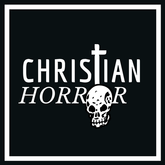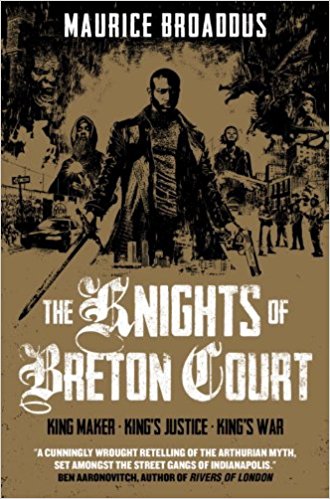How I’m a Christian Horror Writer
11/14/2017
By Maurice Broaddus, originally published on his blogAs the “sinister minister,” one of the first things that I get asked is how can I be a horror writer and call myself a Christian. I actually get asked this by “both sides”: this is one of the primary questions of my horror brethren, probably because they sympathize with the assumed grief that I get from my fellow Christians (though I’ve been invited to speak on “Horror as a Genre” at a Christian convention).
This isn’t a “once and for all” type post, but I think it’s a question worth exploring at length. From the Christian side of the question, part of the underlying issue lies with misconceptions about the genre. When churched folk typically think “horror” they think blood, guts, and the demonic. One time, our extended family sat around the dinner table (after a church service where we symbolically drank the blood and ate the flesh of our Savior). Discussion turned to my web site having both Christian and horror content, at which point I was accused of being”lukewarm” (you have to love epithets that you have to look up in the Bible to get: lukewarm refers to those whom Jesus would spit out as being neither spiritually hot nor cold) because I write horror. “That’s demons and witchcraft” and “I’m only doing the devil’s work” are especially ironic accusations, since it’s their side of the family that has the practicing obeah people. Sometimes I remind people like this about the Bible they are using to condemn me. We could object to the individual elements of the Bible, like the occultic parts involving sorcerers/witches, mediums, and the demons/demon-possessed. We could skip the blood and guts of people being dashed against rocks, their entrails eaten by dogs, mothers eating their own afterbirth, and tent pegs being thrust through people’s heads. We could ignore the bad language (though, we play down the stuff that would be translated piss and shit today); just like we tend to gloss over the sex scenes and the rapes. Or we could realize that the overarching point of the book, the meta-narrative, is the story of redemption. The other thing I remind these well-intentioned folk of is that the language of the genre is the language of Christianity. What do horror stories–like the ones they had to read in high school (like the stories of Edgar Allen Poe or Shirley Jackson’s “The Lottery”) or movies you know they have watched like “The Sixth Sense”–wrestle with? The total depravity of man (if you want a Calvinistic loaded phrase), the nature of good and evil, the mystery of the afterlife, unseen spiritual forces (like angels or demons), or the meditation on mortality/our fear of death. Even the most “atheistic” horror writers, at the very least, are moralists; using writing as therapy, wrestling with what they see in the world around them. So the question becomes “how could I not write horror?” On the flip side, many in my horror circles have misconceptions about Christianity, much of it stemming from a distrust of the institutional church. Let’s face it, many of their stories begin “I was raised (fill-in-the-blank denomination), until …” the church failed them in some way. Many religious people have a narrow definition of what construes true or “saving” spirituality and arguments aren’t going to convince them otherwise. They believe what they believe and they know what God has to say on the topic. Put simply, horror is not for everyone. According to my faith, in Christ we have been given tremendous freedom, not a list of dos and don’ts as many people interpret spirituality. However, we also have been given wisdom to draw our own lines for what constitutes what we can handle and what constitutes sinning against our conscience. Where this freedom becomes abused is when, for example, I assume that my line is the universal demarcation that all Christians should follow. Look, my faith informs my writing. As writers, our worldviews–from nihilistic to religious–are a part of us and thus a part of our writing. What we believe, why we believe, it’s all in there. Are there topics that I won’t touch? I don’t know. I do know that my primary concern is “can I write my stories well?” Admittedly, there is a distrust of art within the Protestant church in particular. It’s like we have come to believe that you can’t have art for art’s sake, that the only thing that makes art redeemable is if it’s a set up for our sales pitch (for example, if at some point the victim in my vampire story might turn to her pursuer and explain how said vampire can know Jesus Christ as his Lord and Savior). Is that the sole definition of a Christian work? No, that’s propaganda, not art. It’s okay if we pursue art for art’s sake. Creating beauty is its own pursuit of truth and all truth points to God. For that matter, since I believe in God as the ultimate Creator, as a writer, I’m joining in his creative work. And I firmly believe that when you are doing what you were created to do, you are doing God’s work. So the question becomes, “how could I not be a Christian writer?”
9 Comments
|
AuthorsChristian Horror gathers articles from authors, artists, directors and filmmakers, priests and pastors on all things Christian horror. Archives
May 2018
Categories |


 RSS Feed
RSS Feed